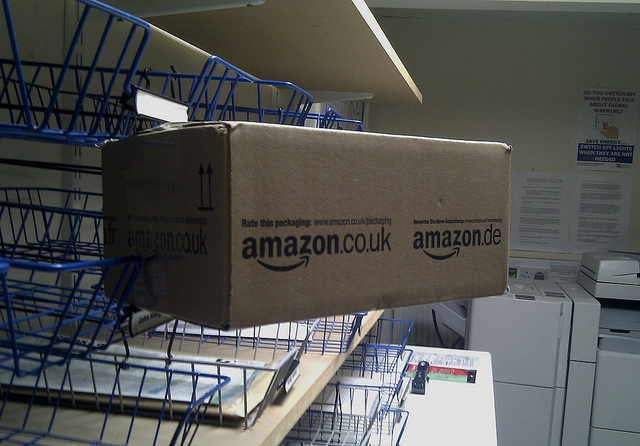
The author of post is our colleague Wouter Vergote. Wouter holds of PhD in economics from Columbia University. He is currently associate professor of Economics at University Saint-Louis-Brussels, and has worked previously for the EU Commission (DG Competition) and for NERA. His areas of expertise are microeconomics, game theory and industrial organization.
Firms, among which many SMEs, increasingly use digital platforms and their own web-shops to advertise and expedite the sale of their goods and services. E-commerce, as emphasized in a 2012 European Commission green paper, is nowadays an important driver of growth in the EU. Indeed, many people switch from visiting ‘brick and mortar’ shops to visiting online platforms (Zalando, Bol.com, Amazon, …) and/or websites (just to pick a less well-known one: yoboot.nl), comfortably seated while listening to their favorite music (equally provided by a digital platform).

While initially performing this activity in a leisurely manner, stress levels may start to rise when noticing a hefty delivery charge, especially if you live ‘abroad’ from the seller’s point of view. True, some websites do not charge for delivery above a certain purchase threshold (Bol.com delivery is free of charge when total purchases exceed €20 in Belgium). However, a quick search may lead you to find out that the same product is offered by other digital sellers at a lower price … excluding delivery costs.
As stated in the Commission’s 2013 roadmap for completing the Single Market for parcel delivery:
A flexible and well-performing EU-wide delivery system will contribute directly to the enormous potential of e-commerce for boosting growth and creating jobs.
But how well does the cross-border EU delivery market perform?
An econometric study, based on price data provided by the European Commission, by Anouk Claes and Wouter Vergote, both at the University of Saint-Louis, Brussels, seems to confirm the existence of large differences between cross-border and domestic letter and parcel prices. The study (December 2015) shows that cross-border parcel prices are 4 to 5 times higher than their domestic equivalent across all products. In addition, the study does not find an apparent link between the real cost and the prices of the delivery.
Based on the the study, the Commission Vice-President Andrus Ansip, in charge of the Digital Single Market, said:
… The high prices and inefficiency of cross-border parcel delivery deter people from selling to, or buying from other EU countries. This means that e-commerce is not being used to its full potential. We now need to make sure that it can develop across all of the European Union, putting this important part of the Digital Single Market strategy into effect as quickly as possible.
In the presence of (partially) segmented markets (the Spanish Correos does no have postal offices in Denmark) with literally thousands of different products, price regulation at an EU-wide scale does not seem the right regulatory response. This view is shared by the Commission. Commissioner Elżbieta Bieńkowska (Internal market, Industry, Entrepreneurship and SMEs) said:
Our objective is to make shipments of cross-border parcels seamless and more affordable for both individuals and SMEs – not by regulating prices or imposing caps but by increasing transparency and competition.

Three results of the study are particularly noteworthy and may inform future regulation.
- Liberalization seems to have a strong disciplining effect on prices. Does this imply that one should refrain from ex ante price regulation and rather aim for (more effective?) ex-post regulation through competition law?
- We find indications that the volume of (incoming) e-commerce leads to lower cross-border price differentials. Fostering more EU-wide e-commerce would then create dynamic efficiencies. Does this not plead for being lenient on ‘appropriate’ co-operation between operators, for regulation on transparency and interoperability and for policies to reduce entry barriers?
- Interestingly, the study also finds indirect evidence that vertical integration reduces cross-border price differentials: both the UK and French National Postal Operators, owners of DPD and GLS respectively, ‘charge’ lower cross-border price differentials, indicating that the NPOs’ ability to use their own ground network in destination countries to deliver the products leads to lower cross-border prices. This would imply that vertical mergers are not necessarily detrimental to cross-border e-commerce. On the contrary, they may have positive effects on e-retailers and on EU online buyers.
(Photo credit: Kieren P via VisualHunt.com / CC BY-SA, TrevorLowe via Visual hunt / CC BY-NC-ND)

